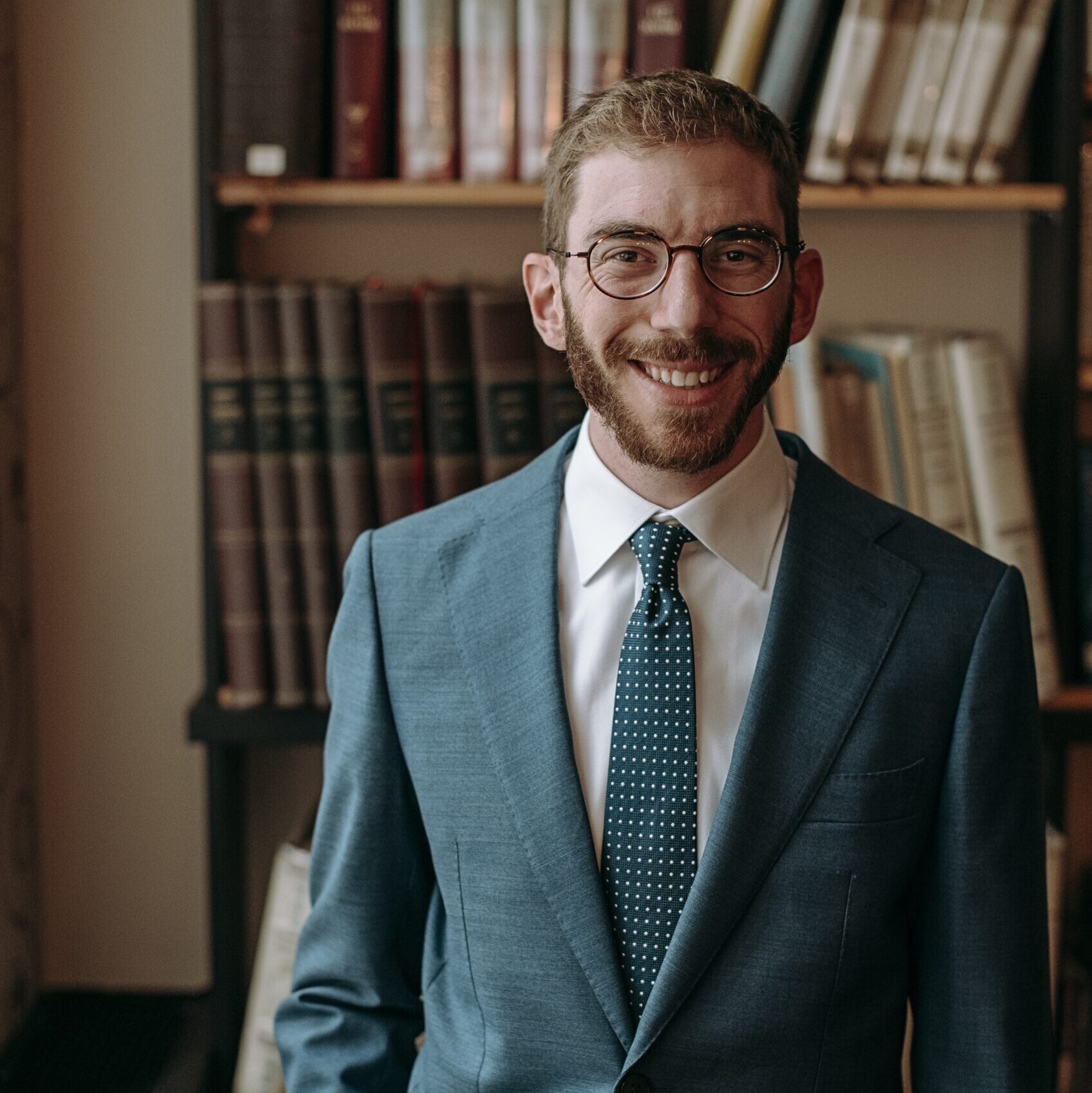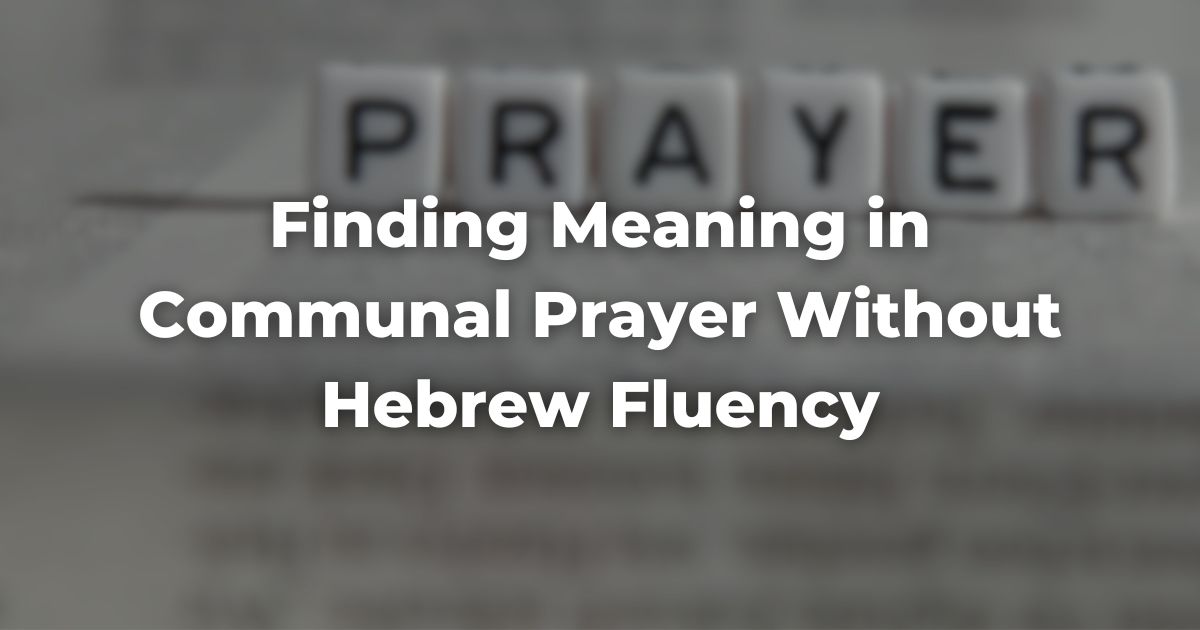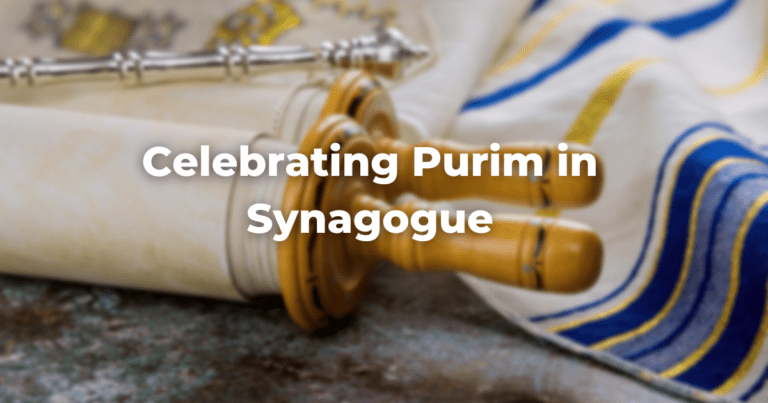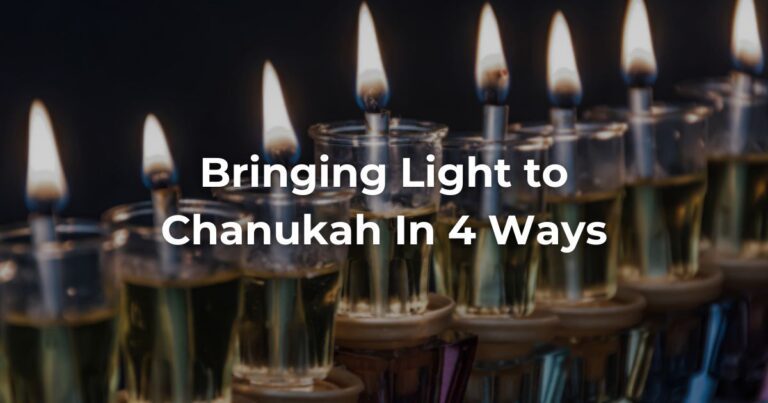Prayer in a synagogue can be daunting. It’s largely in a language most of us aren’t fluent in, with a choreography and structure that may be unfamiliar to many. Yet, there is meaning and value in communal prayer even if we can’t read or understand all of the words.
The synagogue I grew up in prayed with a lot of English, so I was nervous the first time I went to a more traditional style, Hebrew-heavy service. Yet, I was surprised to find that I connected more with this type of prayer, even when I couldn’t follow much of it.
Outside of the language, it’s possible to connect to prayer through a sense of community, the singing, the sound of the prayers, or one’s own intentions.
The first approach to connecting to prayer beyond the language is based on a teaching in TalmudReferring to one of two collections, the Jerusalem and Babylonian Talmuds, edited in the 6th century, that contains hundreds of years of commentary, discussion, and exploration of the ideas in the Mishnah. One could describe it as Mishnah + Gemara = Talmud Read more that when ten or more people pray together, the divine presence is with them. The specific words mentioned aren’t mentioned as important for connecting to G-d. Rather, the act of showing up together as a community in the synagogue to pray is powerful enough on its own.
Building on that, a second approach is that of Abba Binyamin in the Talmud:
One’s prayer is only heard in a synagogue, as it is stated, “to listen to the song and the prayer” (I Kings 8:28). It may be inferred that in a place of song, i.e a synagogue where
G-d’s praises are sung, there prayer should be. (Brachot 6a)
As Abba Binyamin frames it, singing is a crucial part of the synagogue experience. Anyone who has sung or listened to music in another language knows that the meaning of the words is only part of it. Music, in many ways, transcends language. It is possible to have a deep spiritual experience from the melody and the act of communal singing.
A third approach comes from the MishnahA collection of rabbinic teachings edited in Israel around 225 CE. Organized in six sedaraim by subject matter and dealing with both ritual and civil law. Both the Jerusalem and Babylonian Talmud are expansive discussions of the Mishnah. Read more Berurah, a 20th century commentary by the Chafetz Chaim on part of the legal code the Shulchan Aruch. He states that when praying in one’s own language a person only fulfills their obligation to pray if they understand what they’re saying. But, when praying in Hebrew, he says that the act of saying the words is enough.
What makes Hebrew special, that the meaning of the prayers isn’t important when recited in Hebrew? There seems to be something unique about halashon hakodesh, the holy tongue, that gives value to the prayer regardless of understanding. For me, I do find that there is something special about the sound of prayers in Hebrew as opposed to English. The sounds of the Hebrew itself and the act of saying the words can be enough to create a meaningful experience.
A fourth approach comes from a Hassidic story about a shepherd boy who comes to synagogue on Yom Kippur. He barely knows the Hebrew alphabet and can’t follow along in the prayerbook. But he desperately wants to pray with the congregation. He starts reciting the alphabet, and he says in his heart, “This is all I can do. G-d, You know how the prayers should be pronounced. Please, arrange the letters in the proper way.” This story emphasizes the power of intention in our prayer. The language is secondary, the intention to connect to G-d and to do so in community in the way Jews have done for centuries is the important piece.
The different approaches work for different people. For me, the act of gathering in community and singing together is what creates a meaningful prayer experience.
Whether by showing up to be in community, by singing wholeheartedly, by listening to the sounds of the prayers, or by setting our intention to connect to G-d through the service, one can elevate a traditional prayer service to a rich spiritual experience regardless of Hebrew proficiency. Hebrew is the language of Jewish prayer but language is only one part of the whole experience. And the more one shows up in the synagogue the less foreign and daunting the Hebrew feels and the more it strengthens the other approaches.
Author
-

Joshua Klein is a rabbinical student at The Schechter Rabbinical Seminary in Jerusalem, and previously studied at The Jewish Theological Seminary. He was a fellow in the first cohort of the Exploring Judaism's Writer's Fellowship. Joshua grew up in South Florida and before rabbinical school he worked in healthcare software in Wisconsin. Joshua has interned with synagogues in the US and Israel, with the Nativ Gap Year Program and Ramah’s high school in Israel program, and also worked as a chaplain intern at NewYork-Presbyterian Queens. While in New York, Joshua was also involved in Jewish climate activism. In his spare time, Joshua enjoys cooking, reading, writing, and wandering in museums or nature.
View all posts




